NPORS Training Courses
Courses on working with telescoping handlers
The National Plant Operators Registration Scheme offers training and qualifications for the operation of telescoping handlers.
These courses employ both theory and hands-on practical training to equip participants with the necessary knowledge and skills for the safe and effective operation of telescopic handlers.
These NPORS training courses are available at any of EAP Training's purpose-built training centres.
Click here to find your local training centre
On-site training is available upon request.
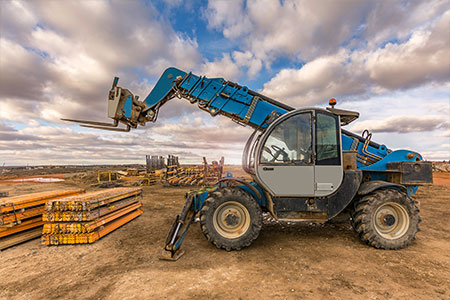
NPORS – Telescopic Handler (NOIO)
£1295 per candidate
This course is designed to provide delegates with comprehensive practical and theoretical training on the operation of telescopic handler safely and efficiently. It is an entry-level course suitable for operators of all experience levels, including those who have not received any formal training.
Course content is as follows:
- Identifying the risks associated with the use of different types of pedestrian mowers
- Selecting appropriate personal protective equipment (PPE)
- Identifying the controls and components
- Carrying out daily checks as indicated in the operator's manual
- Carrying out pre-start checks
- Identifying and report any faults
- Adjusting the cutting mechanism to achieve the required standard
- Operating the machine in a safe and competent manner
- Performing after-use maintenance
- Loading and transporting the machine (if appropriate)
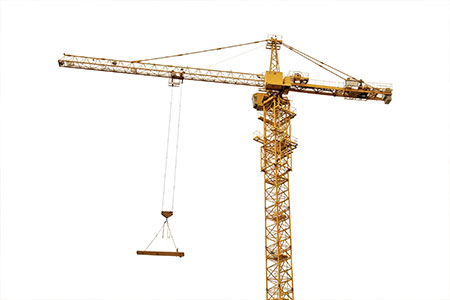
NPORS – Tower Crane (NIO2)
£XXX per candidate
This course is designed to provide comprehensive training on the safe and effective operation of tower cranes, for the use in construction and similar industries.
Course content is as follows:
- The principal components and terminology surrounding tower cranes
- Pre-use checks
- Configuring a crane for lifting duties
- The principal components and terminology surrounding tower cranes
- Pre-use checks
- Configuring a crane for lifting duties
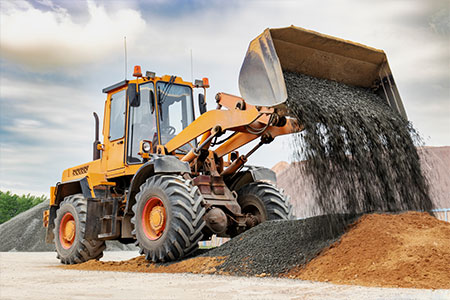
NPORS - Excavator 180° (N201)
£XXX per candidate
This course is designed to provide the candidate with comprehensive training on the safe and effective use of excavators.
Course content is as follows:
- Health and safety regulations specific to excavators
- Pre-operation checks and maintenance procedures
- Understanding the controls and components of an excavator
- Proper excavation techniques and best practices
- Safe lifting and moving of materials
- Digging trenches and foundations
- Backfilling and compacting
- Understanding load charts and calculating load capacities
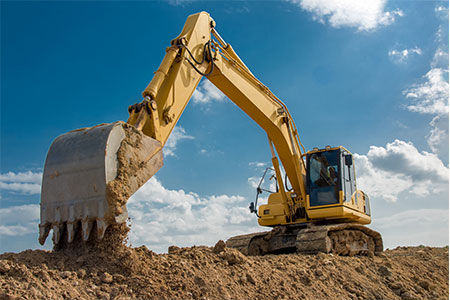
NPORS – Excavator 360° (N226)
£1695 per candidate
This course provides candidates with the skills required to safely and effectively operate an Excavator 360°. It is an entry-level course suitable for operators of all experience levels, including those who have not received any formal training.
Course content is as follows:
- Principal components, the basic construction, controls and terminology
- Conforming to manufacturer's requirements as per the operator's handbook,
- Other types of information including the sourcing of relevant regulations and legislation
- Undertaking all pre-use checks
- Configuring and ready for site and highway travel
- Travelling over rough, undulating ground, steep inclines and level surfaces
- Manoeuvring in confined spaces
- Configuring and set-up for excavating duties
- Explaining actions required for hazards, underground and overhead services
- Excavating differing types of excavations in various types of ground
- Placing materials into transporting vehicles and hoppers
- Grading, spread and level ground and materials
- Attaching and remove buckets
- Lifting, move and place basic slung loads with the rear boom
- Carrying out shut down and securing procedures
- Explaining the loading and unloading procedures for machine transporting
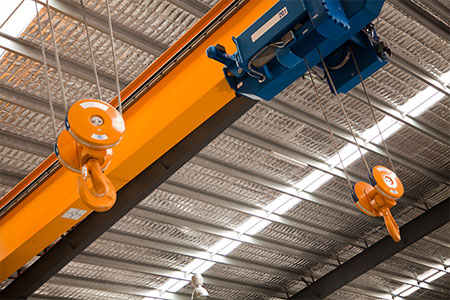
NPORS - Overhead Crane (NIO4)
£XXX per candidate
NPORS - Overhead Crane (NIO4)
Course content is as follows:
- Health and safety regulations specific to overhead cranes
- Pre-operation checks and maintenance procedures
- Understanding the controls and components of an overhead crane
- Proper lifting and moving techniques
- Load calculations and weight distribution
- Rigging and signalling procedures
- Safe operation around obstacles and personnel
- Emergency procedures and response protocols
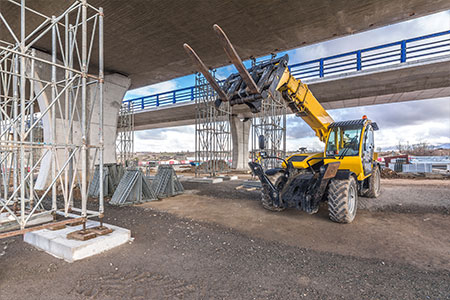
NPORS - Industrial Telescopic Handler (NOII)
£XXX per candidate
The NPORS Industrial Telescopic Handler (NOII) course provides comprehensive practical and theoretical training on the safe and efficient operation of industrial telescopic handlers, also known as telehandlers.
Course content is as follows:
- Health and safety regulations specific to telehandlers
- Pre-operation checks and maintenance procedures
- Understanding the controls and components of a telehandler
- Safe lifting and load handling techniques
- Operating on different terrains and in various conditions
- Stabilizing the telehandler and preventing overturning
- Rigging and signalling procedures
- Understanding load charts and calculating load capacities
- Emergency procedures and response protocols
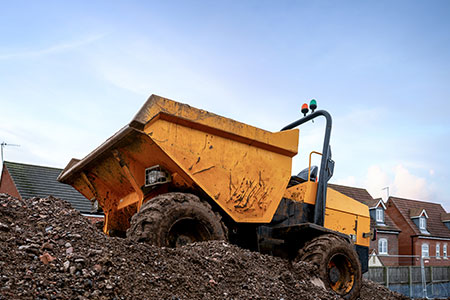
NPORS - Forward Tipping Dumper (N204)
£895 per candidate
This course is designed to provide the candidate with thorough practical and theoretical training in the use of forward tipping dumpers. It is an entry-level course suitable for operators of all experience levels, including those who have not received any formal training.
Course content is as follows:
- Carrying out pre start and running checks
- Setting the Dumper for site & road travel
- Travelling over differing types of terrain, including rough undulating ground (both loaded & unloaded)
- Travelling up & down substantial inclines (both loaded & unloaded)
- Positioning dumper to receive loads
- Complying with loading procedures
- Discharging loads into trenches & over edges
- Placing machine in and out of service condition
- Explaining loading and unloading procedures on & off of transporter
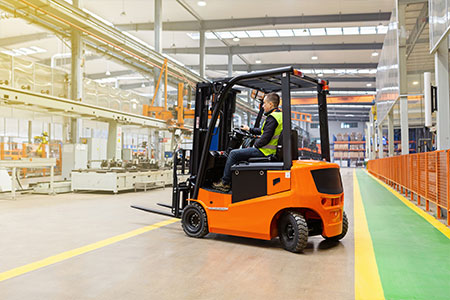
NPORS - Industrial Counterbalance Lift Truck (NOOI)
£XXX per candidate
This course is designed to provide the candidate with training on the safe and efficient operation of industrial counterbalance lift trucks. It is an entry-level course suitable for operators of all experience levels, including those who have not received any formal training.
Course content is as follows:
- Operating plant machinery on all normal tasks for which it is designed
- Naming and explaining the purpose of principle components, the basic construction, controls and terminology
- Conforming with manufacturers requirements as per the operator handbook, and relevant regulations/legislation
- Undertaking all pre-use plant checks
- Explaining need and function of appropriate documentation
- Configuring and ready equipment for travel
- Travelling to and manoeuvre in confined spaces (with and without loads)
- Configuring and set for lifting and transferring duties
- Explaining actions required for hazards, underground and overhead services
- Lifting and remove various loads using the full working height of the forklift
- Transferring and place loads accurately at given locations
- Placing and remove loads from a vehicle
- Maintaining safe working situations
- Maintaining safe and tidy working areas
- Carrying out shut down and securing procedures
- Explaining the loading and unloading procedures for machine transporting
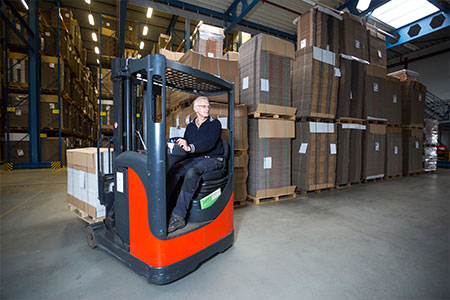
NPORS - Industrial Reach Lift Truck (N003)
£XXX per candidate
This course focuses on the safe and efficient use of industrial reach lift tricks, with a mixture of theory and practical training.
Course content is as follows:
- One's responsibilities as a plant operator
- Locating and identifying the major components of an industrial lift truck
- Conducting pre-operational checks
- Familiarisation with the controls and components of an industrial lift truck
- Configuring an industrial lift truck
- Safe loading and unloading
- Lifting and load handling tasks
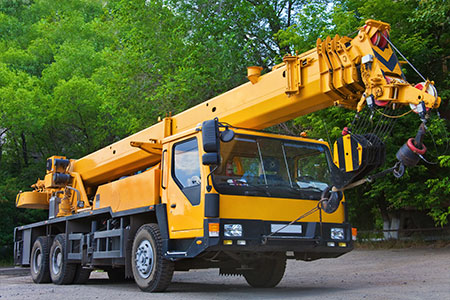
NPORS – Mobile Crane (NIOI)
£XXX per candidate
This course instructs candidates in the safe and productive use of mobile cranes, with a mixture of theoretical and practical-based learning. Candidates will learn the appropriate procedures, components and legislation surrounding the use of mobile cranes in the construction and similar industries.
Course content is as follows:
- Safety precautions and pre-use checks
- Configuration of a mobile crane
- Common hazards and appropriate risk assessment
- Productive use of mobile cranes
- How to accurately place loads
- Signalling and communication
- Maintaining safe working conditions when using a mobile crane
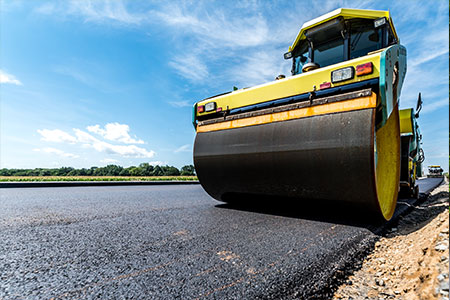
NPORS – Road Roller (N214)
£XXX per candidate
This training program focuses on the proper usage of road rollers, for use in construction and road-building projects. This is accomplished using a combination of classroom-based theory and practical training. It is an entry-level course suitable for operators of all experience levels, including those who have not received any formal training.
Course content is as follows:
- A basic understanding of the industry, the dangers of working in the industry and their responsibilities as an operator
- Working knowledge of the manufacturer's handbook for the particular machine to be used
- Locating and identifying the major components of the machine and explain their functions
- Locating and identifying key controls and explain their functions
- Conducting all pre-operational checks in accordance with manufacturer's and legislative requirements
- Identifying and maintaining PPE appropriate for roller use
- Preparing the roller for use and operate machinery safely and efficiently
- Conducting all necessary safety checks at the work area
- Operating machinery safely and efficiently
- Environmental considerations
- Loading and unloading procedures for machine transportation
- End of shift and shut down procedures
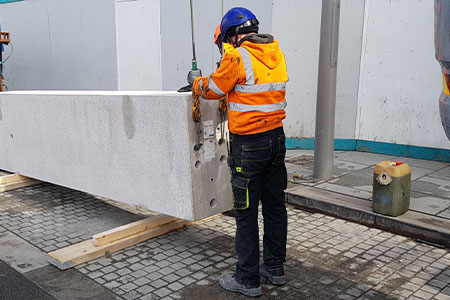
NPORS – Slinger / Signaller (N402)
£1075 per candidate
This training program will equip candidates with the knowledge and skills for the safe and effective operation of a slinger/signaller, used for connecting lifting accessories to the hook of lifting equipment and providing clear instructions during lifting operations. This is accomplished using a combination of classroom-based theory and practical training. It is an entry-level course suitable for operators of all experience levels, including those who have not received any formal training.
Course content is as follows:
- Establishing the weight and dimensions of loads and communicate this information to the crane operator
- Selecting appropriate lifting tackle and attach/detach this correctly and safely
- Safely directing the actions of a crane moving loads of various weights and dimensions
- Giving clear and unambiguous signals in such a manner as to ensure the safety of personnel and plant
- Determining the serviceability of lifting tackle maintaining and storing it correctly
- Understanding the duties and responsibilities, as required by statute, of a Slinger Signaller
- Understanding the effects of load movement on the stability of a crane
- Identifying potential hazards associated with crane operation how to overcome them
- The effect of varying the angles of multi-leg slings and how to calculate their safe working loads
- Methods of establishing weights and dimensions of loads
- The standard code of plant equipment signals
- Understanding operator problems of crane control
- Automatic safe load indicators
- Crane safety devices
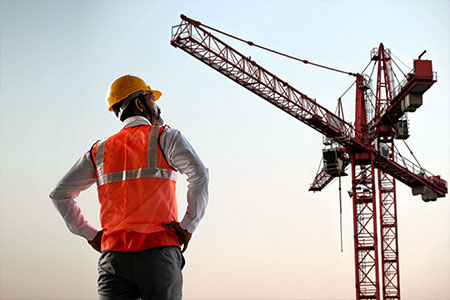
NPORS - Appointed Person (N401)
£1350 per candidate
This course is specifically designed for supervisors and managers who have responsibilities for lifting operations. The candidates will be provided with the necessary knowledge and skills to fulfil the role of an appointed person, and as a result it is appropriate for all experience levels, including those who have not received any formal training.
Course content is as follows:
- Legislation LOLER, PUWER, HASAWA
- Codes of practice BS7121 part 1 and BS712 part 3
- Roles and responsibilities of personnel involved with lifting operations
- Crane appreciation crane types, capabilities and limitations
- Duty charts
- Crane terminology
- Site access and egress
- Documentation and certification for lifting equipment and lifting accessories
- Crane stability/ground conditions
- Rated Capacity Indicators (RCI's) and Safe Working Loads (SWL)
- Selection of lifting accessories
- Types of accessories and use
- Mode factors for accessories
- Down rating of accessories
- Sling angles
- Communications
- Planning a lifting operation
- Writing a risk assessment (End test)
- Writing a method statement (End test)
TrainingEAP are dedicated to promoting safe working environments across the UK.
If you have any further questions about our construction health and safety training, facilities or accrediting bodies, please let us know at
